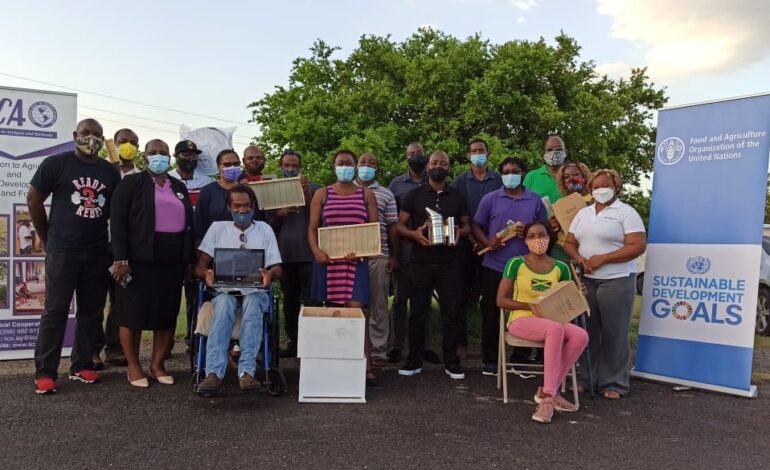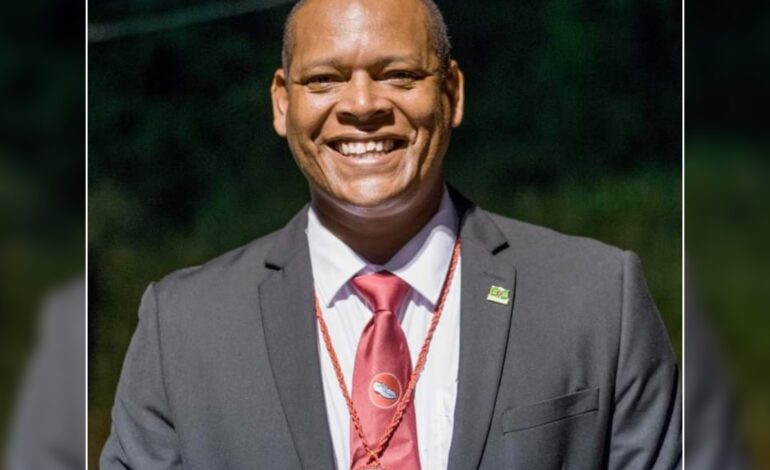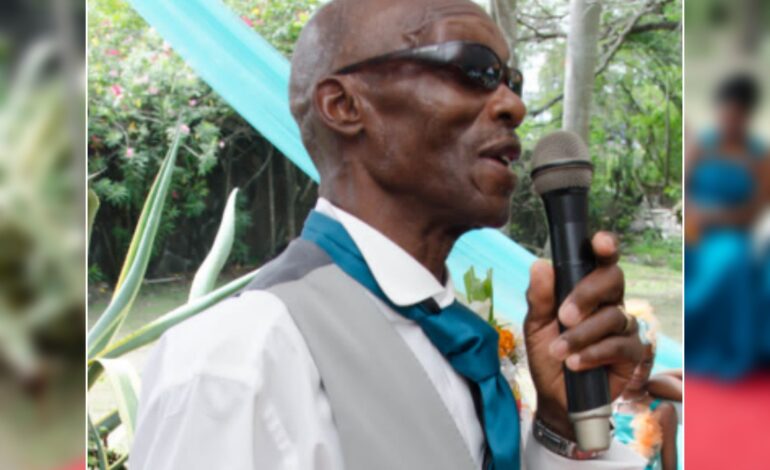
26th October 2021, St. John’s, Antigua – The Food and Agriculture Organization of the United Nations (FAO) and the Inter-American Institute for Cooperation on Agriculture (IICA) is creating more buzz with their ongoing training of beekeepers in Antigua.
The second group of 14 beekeepers – 3 females and 11 are males were recently trained in Beekeeping practices and business management under the FAO project “Rebuilding the resilience of agriculture sector and livelihoods of Barbudans affected by Hurricane Irma”. The project which was designed with climate challenges in mind, aims to increase the number of local beekeepers to create sustainable food and agriculture systems. The project was also developed in response to the devastating effects of Hurricane Irma and aligns its capacity building with the priorities expressed in the national adoption of the Green Island concept.
The workshop focused on increasing capacity among new beekeepers using a blended learning approach, which combines practical and theoretical skills. New beekeepers were given classroom sessions where they learned business management including record keeping, the importance of critical thinking as an entrepreneur and guidance on registering their business as a honey producer. Additionally, participants also learnt the value chain and their critical role as producers and in some cases processors in contributing to the food security of Antigua and Barbuda.
The practical training sessions included a visit to an apiary where participants were exposed to effective beehive management techniques and a tutorial on safety practices when managing and handling bees. The blended learning approach of theory and practical training is aimed at creating a foundation for these future apiculturists to make meaningful contributions to the apiculture subsector. Additionally, the project has created a mechanism for the long-term development of the participants as they have been paired with experienced beekeepers to act as an information resource and general support as they undertake apiary management under the guidance of the IICA technical team and Antigua Beekeepers Cooperative (ABC). The workshop also included primary data collection in the form of interviews with local apiculturists in order to understand the local commodity market.
Vermaran Extavour, International Expert – Value Chains and Project Coordinator at FAO welcomed participants to the training. She stated, “I wish to emphasize the importance of creating viable businesses using a market driven approach where data and evidence drive the decisions on the final products offered to customers as well as the importance of collaboration and communication with other parts of the value chain such as input suppliers”.
The workshop closed on a similar note with The Honorable Samantha Marshall, Minister of Agriculture in Antigua & Barbuda who expressed thanks to FAO and IICA for the continuing support toward the development of agriculture in Antigua and Barbuda and stressed the importance of buying and eating local. In addition, Gregg Rawlins, IICA Representative in the Eastern Caribbean States (ECS) and Leisel Juman Agribusiness and Value Chain Consultant with FAO both encouraged the beneficiaries to make full use of the resources and support available to them as they contribute to food security on the island.
Meanwhile, Saralee James who participated in the training also praised the themes of cooperation that were present throughout the workshop, which demonstrated opportunities for collaboration with other value chain actors. She also stated, “I thought the business development aspect was very insightful”.
Each participant were provided with a start-up apiary kit, which included a brood box, super, 10 frames, wax foundation, bee brush, smoker, bee suit and a hive tool, all of which are basic inputs a new beekeeper would need to start an apiary.
The project will now focus on a value chain assessment with over 25 producers, technical staff from Caribbean Agricultural Research and Development Institute (CARDI) members of the national pineapple committee as well as representatives from the Ministry of Agriculture, Fisheries and Barbuda Affairs. These stakeholders will meet with the IICA and FAO joint implementation team to assess the black pineapple value chain and identify opportunities for development.






